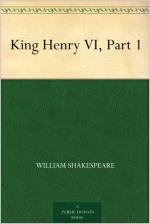|
This section contains 8,481 words (approx. 29 pages at 300 words per page) |

|
SOURCE: “Jack Cade in the Garden: Class Consciousness and Class Conflict in 2 Henry VI,” in Enclosure Acts: Sexuality, Property, and Culture in Early Modern England, edited by Richard Burt and John Michael Archer, Cornell University Press, 1994, pp. 48-67.
In the essay below, Cartelli views Jack Cade as an embodiment of modern-style class distinctions and social transgression.
I
In Shakespeare's 2 Henry VI the notorious career of Jack Cade concludes with the starving rebel's defeat at the hands of Alexander Iden, a self-styled “poor esquire of Kent” whom Cade formally terms “the lord of the soil” that provides the setting for their notably unequal combat. The end of Cade's career ironically becomes the occasion for a sudden turn in Iden's fortunes when Iden is “created knight for his good service,” given a reward of a thousand marks, and effectively transformed into a courtier.1 I say “ironically” because what may be...
|
This section contains 8,481 words (approx. 29 pages at 300 words per page) |

|


